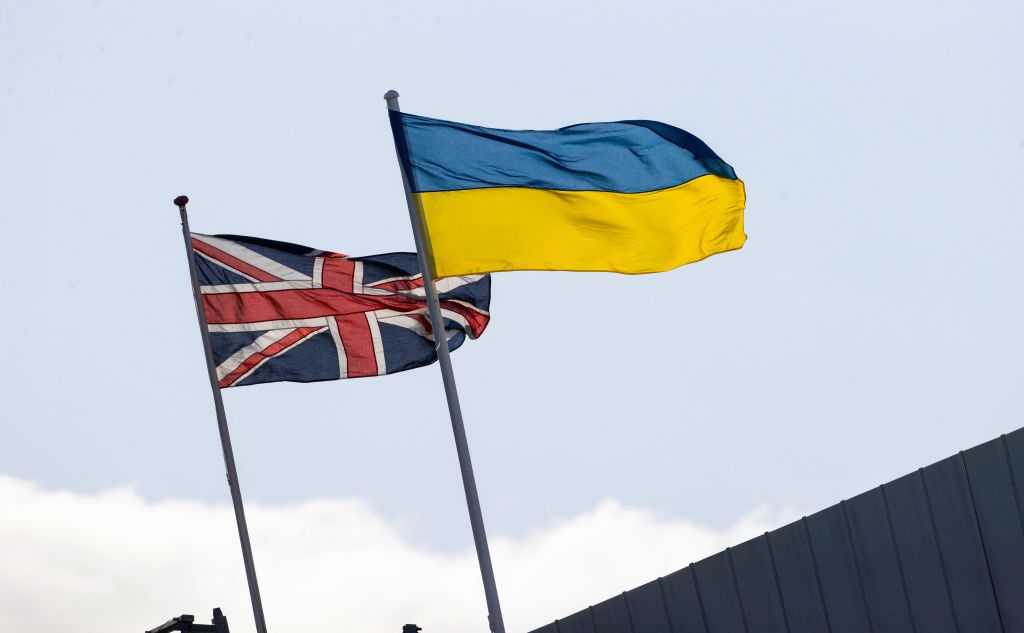Summarize this content to 2000 words in 6 paragraphs
The Russian embassy in London criticized the U.K.’s plan to transfer more than two billion pounds ($2.5 billion) to Ukraine using frozen Russian assets, calling it a “fraudulent scheme.”In October, the U.K. announced it would provide Ukraine with a 2.26 billion-pound loan as part of a broader package from the Group of Seven (G7) nations. The funds, backed by frozen Russian central bank assets, are intended to support Ukraine’s military, purchase weapons, and rebuild damaged infrastructure.The loans were agreed upon in July by G7 leaders—comprising the U.K., Canada, France, Germany, Italy, Japan, and the United States—along with senior European Union officials. The majority of the frozen Russian assets are held in EU countries.”We are closely following UK authorities’ efforts aimed at implementing a fraudulent scheme of expropriating incomes from Russian state assets ‘frozen’ in the EU,” the Russian embassy said on social media.U.K.’s Defense Minister John Healey confirmed the funds would be dedicated solely to Ukraine’s military. He noted that the money could help Ukraine develop drones with ranges surpassing some long-range missiles.Russia’s embassy described the plan as illegitimate. Last week, Russia’s Foreign Ministry accused the United States of “robbery” over its transfer of frozen Russian assets as part of the G7’s $50 billion loan package for Ukraine.UK announces $283 million military aid package for UkraineAccording to media reports, the package includes over 92 million pound ($115 million) in equipment to support Ukraine’s navy, including small boats as well as reconnaissance drones. A further 39 million pounds ($49 million) will be used to supply over 1,000 counter-drone electronic warfare systems.
!function (f, b, e, v, n, t, s) {
if (f.fbq) return; n = f.fbq = function () {
n.callMethod ?
n.callMethod.apply(n, arguments) : n.queue.push(arguments)
};
if (!f._fbq) f._fbq = n; n.push = n; n.loaded = !0; n.version = ‘2.0’;
n.queue = []; t = b.createElement(e); t.async = !0;
t.src = v; s = b.getElementsByTagName(e)[0];
s.parentNode.insertBefore(t, s)
}(window, document, ‘script’,
‘https://connect.facebook.net/en_US/fbevents.js’);
fbq(‘init’, ‘3189560391356472’);
fbq(‘track’, ‘PageView’);
window.fbAsyncInit = function () {
FB.init({
appId: 271541601613017,
cookie: true,
xfbml: true,
version: ‘v2.5’
});
}.bind(this);
(function (d, s, id) {
let js, fjs = d.getElementsByTagName(s)[0];
if (d.getElementById(id)) return;
js = d.createElement(s);
js.id = id;
// @ts-ignore
js.src = “https://connect.facebook.net/en_US/sdk.js”;
// @ts-ignore
fjs.parentNode.insertBefore(js, fjs);
}(document, ‘script’, ‘facebook-jssdk’));















